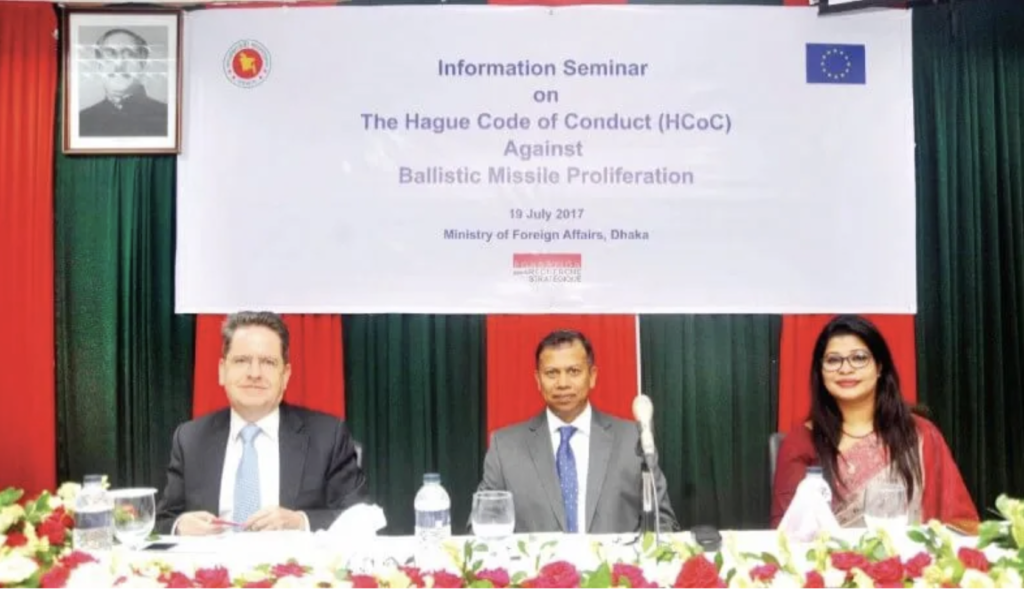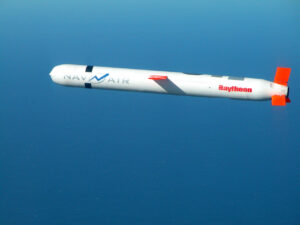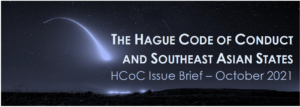Expert mission on HCoC to Bangladesh
19 July 2017
On 19 July 2017, the FRS conducted an expert mission to Bangladesh to discuss and debate the HCoC. This event was covered by the local newspaper BD Chronicle.
This mission was part of a series of targeted national visits.
AGENDA
WELCOMING REMARKS
- Dr. Jean-François DAGUZAN, Deputy Director, Foundation for Strategic Research
- Andrzej KNEIFEL, Minister Counsellor, Embassy of Poland to India, (HCoC Chair)
- E. Ambassador Pierre MAYAUDON, Head of the EU Delegation to Bangladesh
- Chief Guest: Lieutenant General Md. Mahfuzur RAHMAN, rcds, ndc, afwc, psc, PhD, Principal Staff Officer, People’s Republic of Bangladesh
I/ THE HCoC AGAINST THE PROLIFERATION OF BALLISTIC MISSILES: UNIVERSALITY, IMPLEMENTATION & VISIBILITY
SPEAKER:
- Benjamin HAUTECOUVERTURE, Senior Research Fellow, Foundation for Strategic Research
TOPICS FOR DISCUSSION:
- Presentation of the Code: its main provisions
- The concrete meaning of implementing the HCoC
- The HCoC in Asia: positions and evolution
- Relevance of joining the HCoC in relation to Bangladesh non-proliferation policies
- Successes and challenges of the HCoC in today’s environment
II/ CURRENT TRENDS CONCERNING BALLISTIC MISSILE TECHNOLOGIES & PROLIFERATION GENERAL & REGIONAL VIEWS
SPEAKERS:
- Dr. Jean-François DAGUZAN, Deputy Director, Foundation for Strategic Research
- Brigadier General Mohammad MAHBUBUL HAQ, PBGM, ndc,afwc, psc
- Noor Mohammad SARKAR, Bangladesh Institute of Law and International Affairs (BILIA)

TOPICS FOR DISCUSSION:
- The current regional state of play in the ballistic-missile field
- Issues arising from dual-use technologies and related strategies
III/ CURRENT TRENDS CONCERNING SPACE LAUNCH TECHNOLOGIES & CAPABILITIES: DYNAMICS OF SPACE LAUNCH & FUTURE USES OF SPACE APPLICATIONS
SPEAKER:
- Dr. Serge PLATTARD, Senior Resident Fellow, Honorary Professor of University College London, Chair of the International Astronautical Federation (IAF) Committee on Space Security
TOPICS FOR DISCUSSION:
- Space developments in South Asia
- The characteristics of the development of space launch technologies
- The evolution of the satellite industry and its impact upon the space launch sector
CONCLUDING REMARKS




